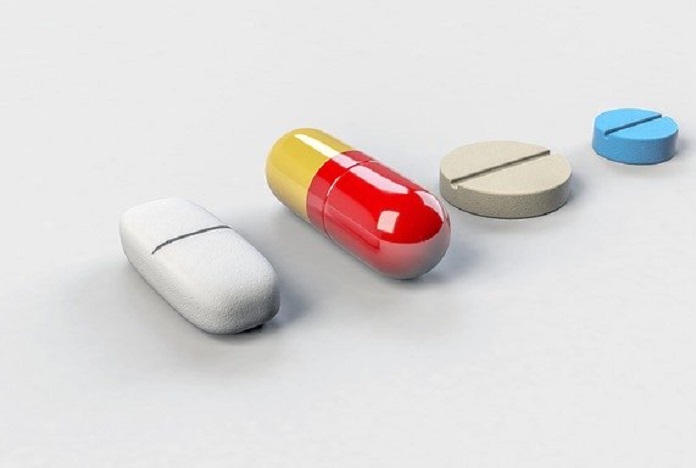While the impact of antibiotics on gut bacteria is well known, do other commonly prescribed medications impact gut bacteria?
The vast world of gastrointestinal bacterial diversity has been the subject of greater research focus in recent years. However, many significant areas remain understudied. One such area is the impact commonly prescribed medicines have on the bacterial diversity of the human gastrointestinal tract. Most research in this area has focused on the impact of antibiotics, which have long been known to damage gut bacteria. However, growing evidence suggests many non-antibiotic drugs can also have an impact. A new study published in Nature Communications addresses this topic (1).
The research team from the University of Groningen used genomic sequencing of fecal samples to examine the gut microbiome of three participant groups. One group represented the general population, while two others represented patients with irritable bowel syndrome (IBS) and inflammatory bowel disease (IBD). These particular conditions were chosen as they are known to impact gut biodiversity.
In total, the study involved 1883 individuals. The majority (1126) were taking at least one medication at the time of sampling. The number of drugs per participant ranged from 0 to 12. The richness or diversity of gut bacteria was measured using a scale known as the Shannon Index. The first analysis run by the research team was to compare the effect of each individual medication on overall gut composition. Proton-pump inhibitors (PPIs) were the only individual medication associated with altered bacterial composition in all three cohorts.
They next conducted a meta-analysis, pooling the data and analysing any potential associations, while accounting for variables such as age, sex, and BMI. This analysis revealed a total of 154 associations between specific bacterial species and individual medications. These associations involved a total of 17 groups of drugs, with PPIs, metformin, laxatives, and vitamin D supplements having the strongest associations.
The analysis also suggested that changes in the levels of individual bacterial species are associated with specific medications. For example, the use of SSRI antidepressants was associated with increases in a specific species called Eubacterium Ramulus. When analysing the effect of combinations of medications, the same group of drugs (laxatives, metformin, PPIs) continued to show the highest number of associations.
Next, the researchers examined whether the individual cohorts differed in their responses to various medications. In the IBD cohort, drugs such as benzodiazepines, levothyroxine, and tricyclic antidepressants were associated with higher levels of certain specific bacterial strains. Similarly, in the IBS patients, the use of steroid inhalers was associated with increased abundance of two particular species.
As PPIs seemed to be the drug group with the greatest impact, the microbiome signature of PPI users was also examined. Even accounting for the impact of other drugs, PPIs were implicated in altering the levels of 24 bacterial populations.
The final analysis carried out in this study looked at the resistome. This refers to the group of antibiotic resistance (AR) genes present in the gut microbiome. When examining the entire study group as a whole, users of PPIs and metformin had higher levels of AR genes. PPI use, in particular, was associated with increases in three specific AR genes.
This research is particularly important as more evidence is emerging linking the gut microflora to conditions such as IBS, rheumatoid arthritis, as well as potentially explaining the individual variability in drug response and experience of drug side effects. For example, the results of the study suggest that oral steroid use is associated with an increase in the levels of a bacterium called Methanobrevibacter smithii. This bacterium has been linked to obesity and increased BMI. Oral steroid users frequently experience weight gain. The results of this study suggest a possible link between the impact of oral steroids on the microbiome and their impact on weight.
The particular medications identified as impacting on gut bacteria are also of interest. Laxatives, vitamin D supplements, and PPIs are extremely commonly prescribed but are also considered to be among the more benign in terms of interactions and side-effects. What this study reveals is that although these medications may not have many pharmacological side effects or drug interactions, they may be responsible for changes in gut biodiversity that can have an impact both on health and the metabolism of other medications.
There are a number of limitations acknowledged in the study. Firstly, whilst a number of associations are demonstrated between gut bacteria and medication, these associations cannot be claimed to be causal. There are too many variables unaccounted for. In participants displaying altered gut microbiome it is difficult to distinguish which effects are caused by medications and which are caused by disease. However, overall, the study scratches the surface of a fascinating topic that will surely be the subject of significant further research.
Written by Michael McCarthy
Reference: Vich Vila A, Collij V, Sanna S, Sinha T, Imhann F, Bourgonje AR, et al. Impact of commonly used drugs on the composition and metabolic function of the gut microbiota. Nature Communications. 2020;11(1):362.
Image by Arek Socha from Pixabay



